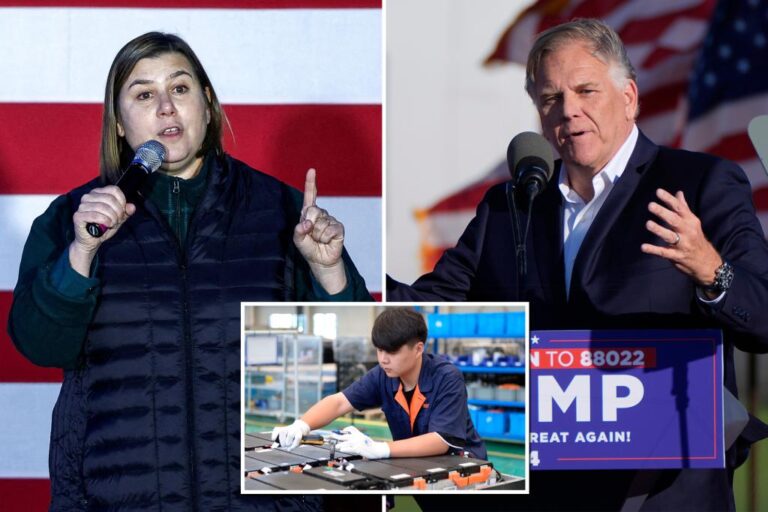Foreign policy is not a common topic in U.S. Senate races, but in Michigan, tough rhetoric against the Chinese Communist Party has become increasingly prevalent during the campaign.
Michigan, a key battleground state in the 2024 general election, is voting this year to replace retiring Democratic Senator Debbie Stabenow. The primary is on August 6, but the race has coalesced around Democratic Rep. Elissa Slotkin and former Republican Rep. Mike Rogers, the front-runners for their respective parties’ nominations, who have both attacked the Chinese Communist Party with unusual frequency in this year’s Senate elections.
“Decisions from Beijing and the Chinese Communist Party will have far greater impact than those from Washington. The President and Congress’ hands are tied and their power is limited by Beijing’s actions on the international stage,” Rogers wrote on his campaign website.[This] That means more vigilant monitoring of Chinese investments, apps and technology, and not being afraid to use government power to protect the American people.”
Rogers accused Slotkin of doing business with Gochon, a China-linked battery manufacturer that has been accused by Congress of using Uighur Muslims in China’s Xinjiang region as “slave labor.” Fox News reported that Slotkin signed a non-disclosure agreement with the company in 2023 to discuss plans to build an electric vehicle battery factory in Michigan.
“It’s outrageous that Elissa Slotkin signed a secret agreement to help funnel billions of tax dollars to Chinese companies,” Rogers tweeted in June. Fox reported that Slotkin declined to comment on the NDA.
Slotkin, meanwhile, has focused on the perceived threat of Chinese-made vehicles in the state and has engaged in Communist Party-linked advocacy.
“The idea of Chinese-made connected cars, self-driving cars, electric cars, trucks, self-driving trucks coming into the United States is no longer a fantasy. It’s no longer the stuff of science fiction,” Slotkin said in May. “My new mission is to put up a national security barrier to these vehicles coming into the United States. We can’t let them get a foothold in the United States.”
Ms. Slotkin introduced legislation in the House in June that would allow the Commerce Department to block the sale of “connected cars” made by Chinese companies, the latest in a series of bills she has introduced this year targeting business dealings with China.
Michigan has long been the center of the U.S. auto industry and many labor unions, and manufacturing, especially cars, is a sensitive issue. Competition with China in auto manufacturing has been a key theme of Slotkin’s rhetoric, and her website says she will “bring critical supply chains and manufacturing back home.”
Both Rogers and Slotkin have cited their work in national security as bolstering their qualifications to take on China.
Rogers began his career as a U.S. Army officer and FBI agent before serving 14 years in Congress, including four years as Chairman of the House Intelligence Committee, which oversees all U.S. intelligence agencies and operations. “Mike made his greatest mark on Congress as Chairman of the House Intelligence Committee, where he was one of the first to sound the alarm about the economic and national security dangers posed by China,” Rogers’ website says.
Slotkin, meanwhile, touts her background as a Central Intelligence Agency analyst who deployed three times to Iraq and served on the National Security Council under President George W. Bush. She also served as deputy undersecretary of defense for international security affairs under Obama.
The Michigan race is one of the hotly contested Senate races this year, and polls show Ms. Slotkin leading Ms. Rogers in a hypothetical general election.
The Slotkin and Rogers campaigns did not immediately respond to requests for comment.

